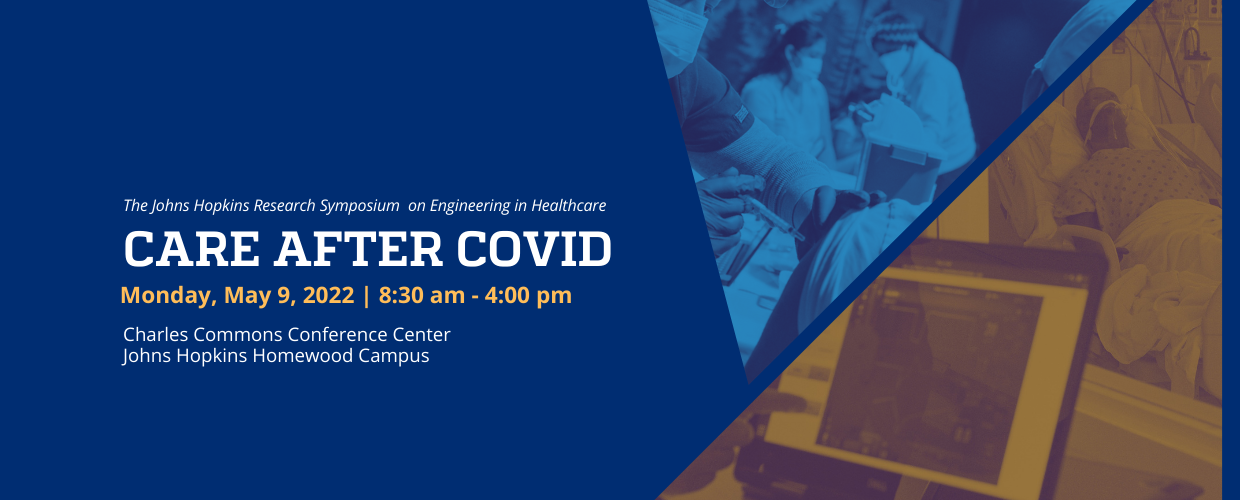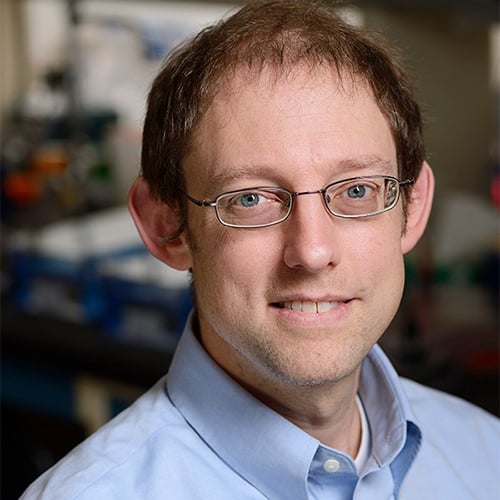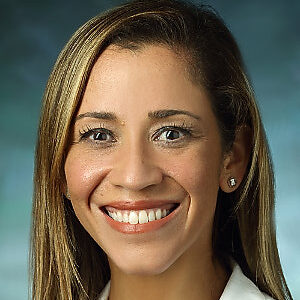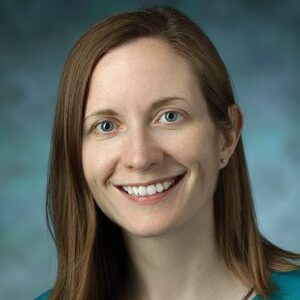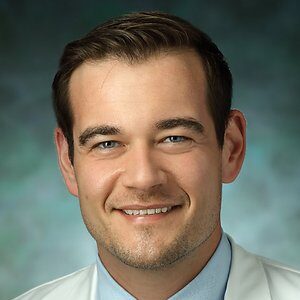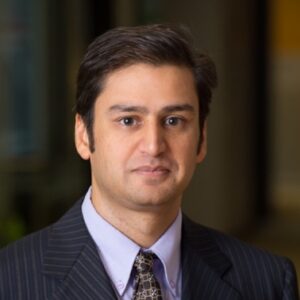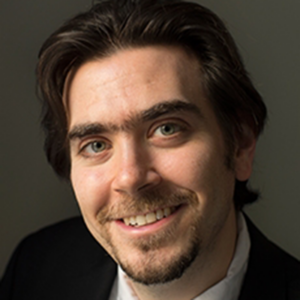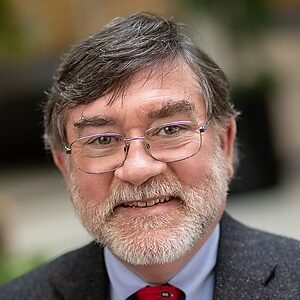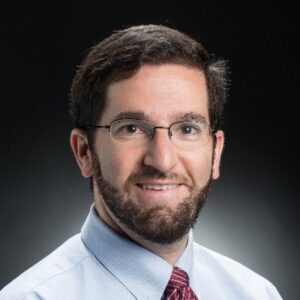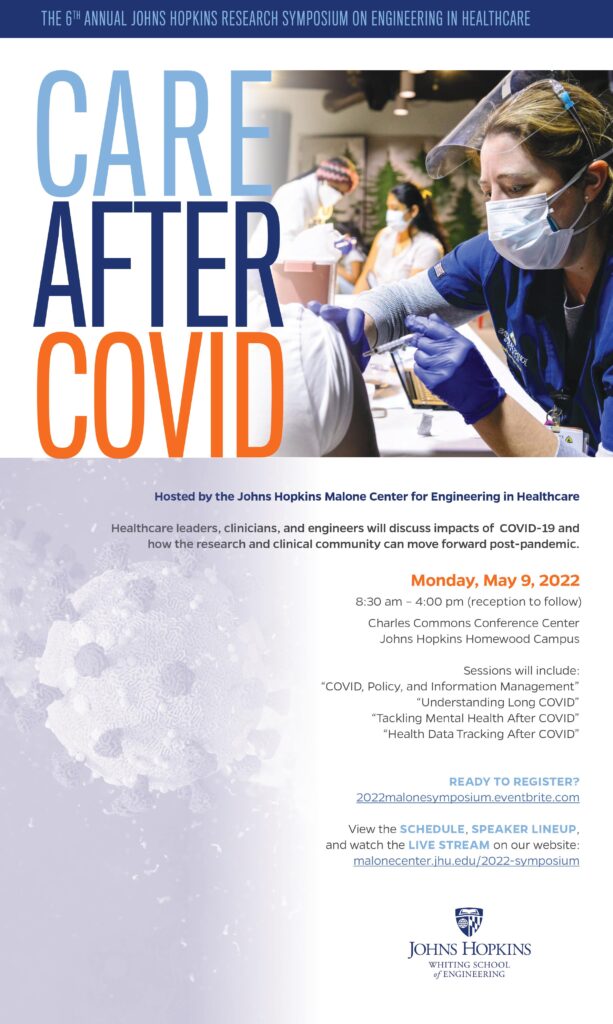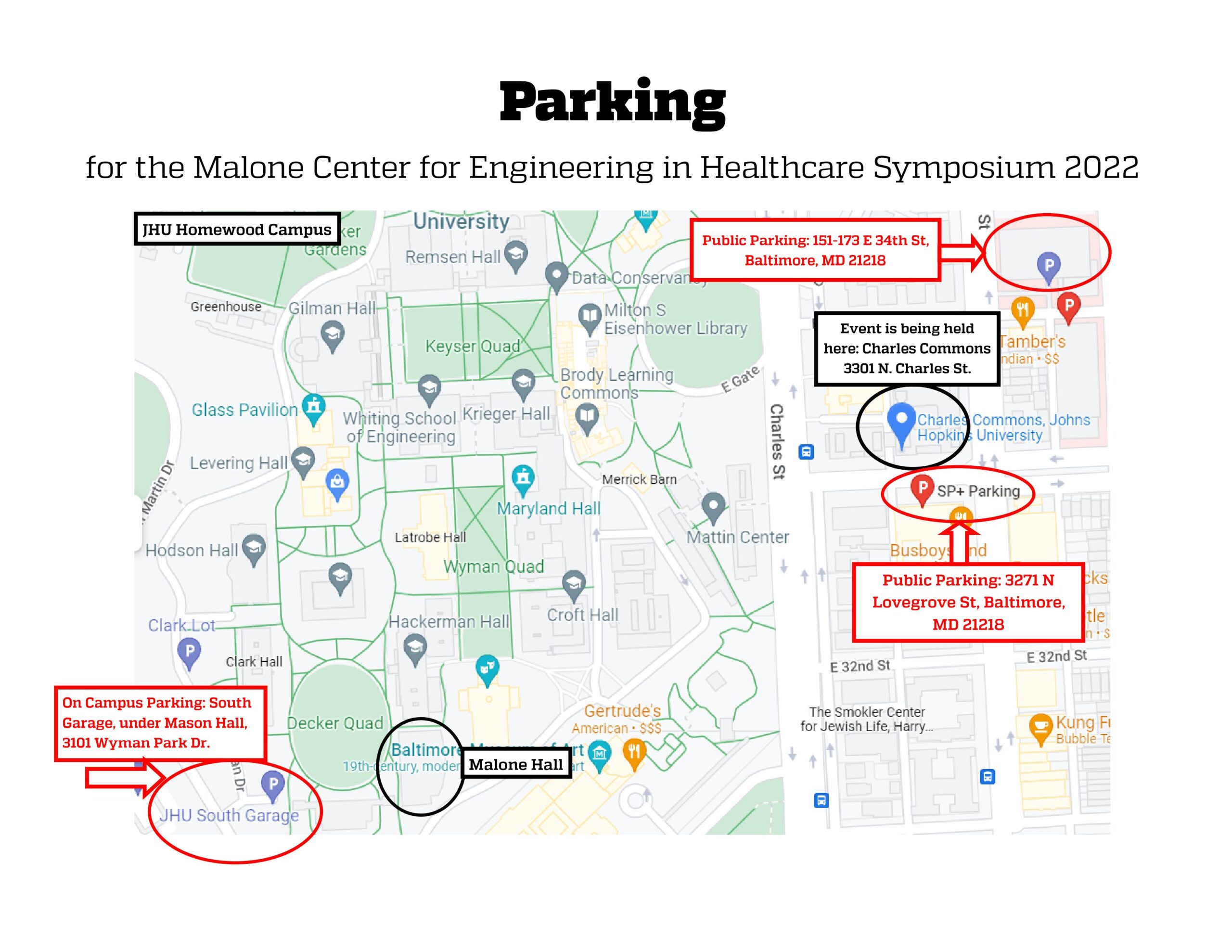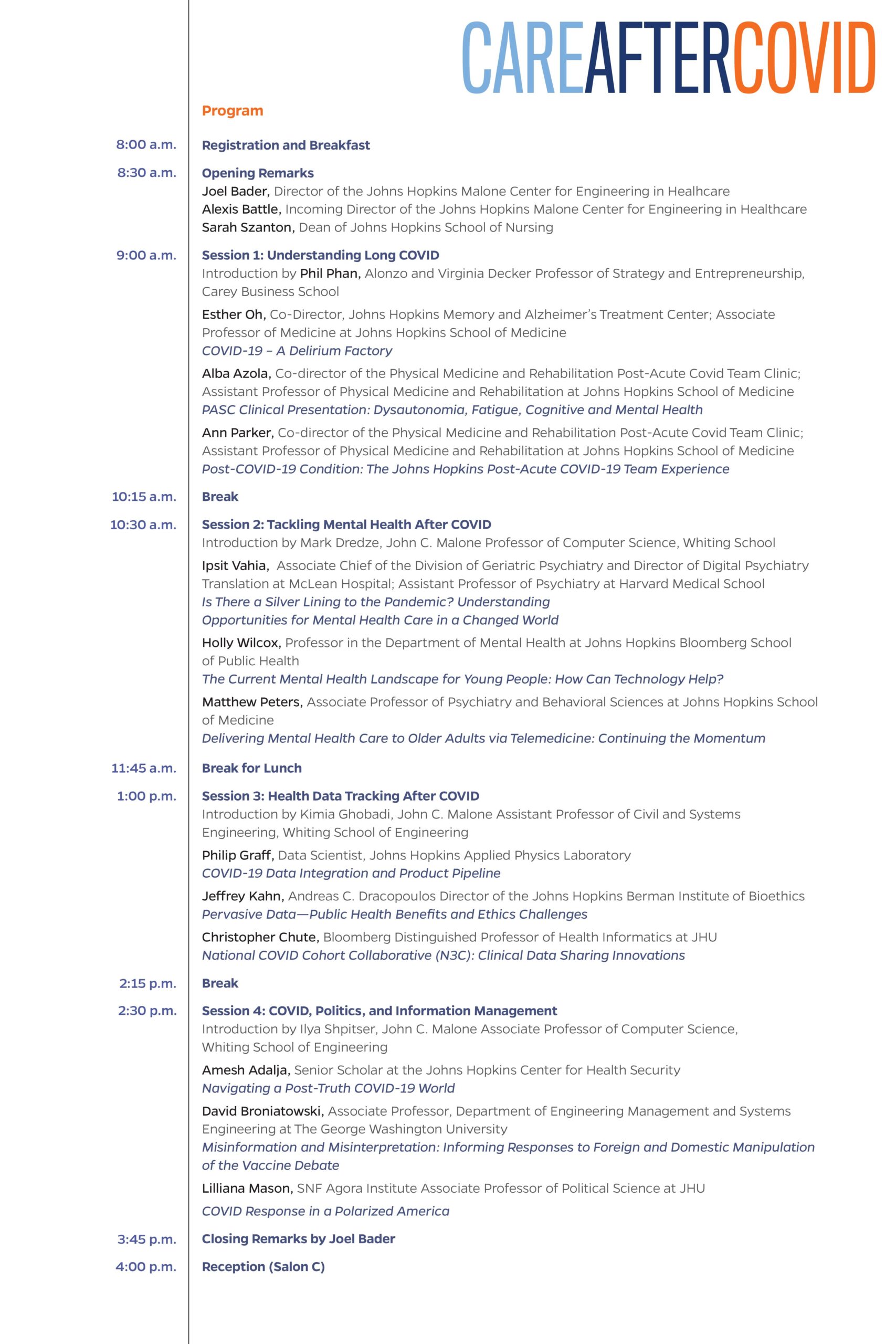Join us for the 2022 Johns Hopkins Research Symposium on Engineering in Healthcare, “Care After COVID” at Johns Hopkins Homewood campus in Baltimore, Maryland.
The 2022 symposium will explore challenges and opportunities faced by those who have recovered from the acute phase of Covid-19 and experiencing the chronic aftereffects. One important aim of the symposium is to identify areas where systematic deployment of appropriately designed and targeted technologies can help those most at risk from post-Covid recovery difficulties.
Who: All interested in engineering and healthcare – faculty, clinicians, researchers, students, industry leaders – are invited to attend.
Where Charles Commons Conference Center on the Johns Hopkins Homewood campus
Sessions will include:
- Session 1: “Understanding Long COVID”
- Session 2: “Tackling Mental Health After COVID”
- Session 3: “Health Data Tracking after COVID”
- Session 4: “COVID, Politics, and Information Management”
- Networking Reception
